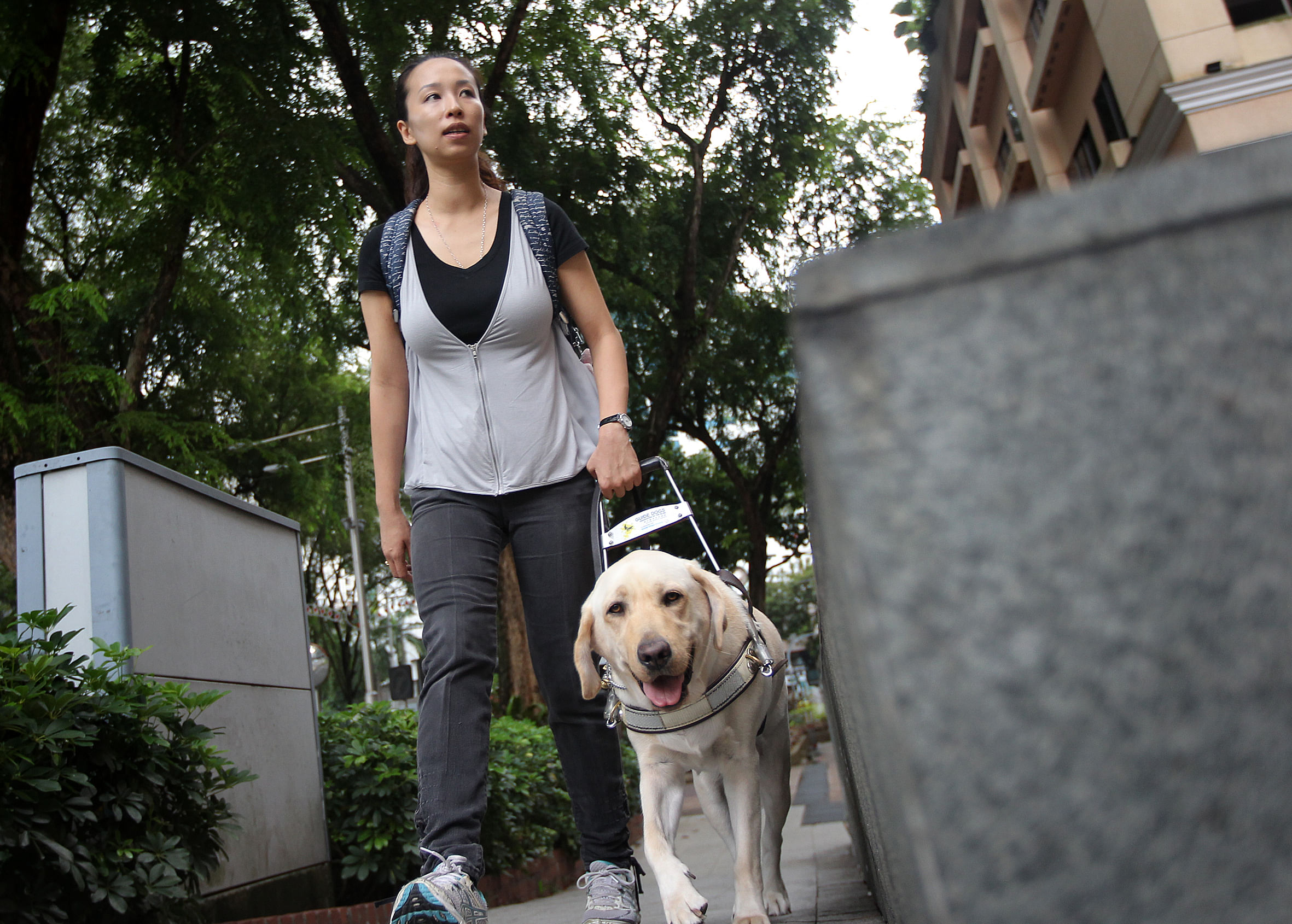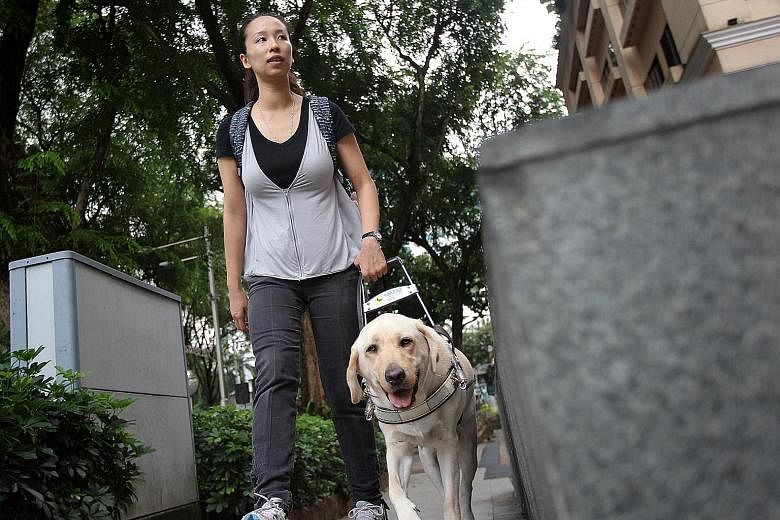Running my fingertips across the rectangular smooth plastic window of the envelope, I wondered what it contained. I pulled up an OCR app on my iPhone for snapping pictures which would read aloud the text on the picture. My heart swelled with pride when I heard the robotic voice read "Notice of Assessment"!
Although in recent days I have heard many lament that the taxman is here again, that letter held a very different meaning for me. For the past two years I have been paying income tax and that would have been absolutely normal should I not be approaching 40!
The cost of my disability impacted myself, my family and my country. Besides the medical cost associated with my disability, my mother stopped working to focus on helping me through school. Till my 20s, I was also receiving financial support from my family, and I became financially independent only in my mid-30s.
As a blind person, my journey in establishing a career has not been normal or easy by any means.
After graduating close to the top of my class with a master's in professional counselling, I was so eager to start work but found that the natural progression of getting a job was an uphill battle. Unlike my peers, I found myself sending resume after resume with not much success.
One job agency offered me a position as an hourly paid telemarketer, I was advised that "some work/income is better than none and it would take a miracle for a disabled person to find work outside of sheltered employment or social enterprises".
Another interviewer called me up to say: "Your education and experiences are very aligned with what we do, but because you are blind, you cannot possibly do the job required of you."

Yet another interviewer reviewed my application while on the phone with me. She hung up after I explained that I attended the Singapore School for the Visually Handicapped for a year because I am blind and, yes, I am still blind.
At another interview, I was told very kindly: "Ms Chiu, we are very proud of your academic achievements, but think you would not be suited to working with us as the area gets very dark at night and it is dangerous for you as you would be required to work late." Hello? Bright or dark makes no difference to a blind person!
After a long search, I settled for the only offer of a job in counselling which paid me two-thirds of market value. I resigned after a few months as my blindness prevented me from receiving security clearance to enter the premises where most of the company's work was conducted.
I eventually took matters into my own hands and, with some help, set up The Safe Harbour, Counselling Centre. I built my career from there; things were slow-going at first but, over the past six years, I have established a steady client base that is confident and happy with my work. Although a little late, I am glad that I am now able to contribute in my little ways to my family and society.
While I have to accept that getting an ideal job is never easy for anyone, interviewing was a very frustrating experience for me. I was advised that it would be unsafe or impossible for a blind person to do this or that, instead of being evaluated based on my qualifications and skills. My situation as a disabled person is not unique. Many of my peers face similar challenges and barriers. I believe that a contributing factor to this situation is society's focus on the "dis" in a disabled person's abilities. While our abilities may be curtailed or limited because of our disability, there are many ways to mitigate our challenges which would allow us to participate more fully. Many workplace modifications or assistive devices needed for a disabled person to perform his or her job can be accomplished with ease and are also heavily subsidised by our Government.
Building a social culture of empathy and empowerment will help us realise a truly inclusive Singapore. The first, second and third Enabling Masterplans have begun to lay the foundation for an inclusive society; the rest is up to us as individuals and as a collective to see this come to fruition.
As persons living with a disability, we are ultimately responsible for ourselves. As family or educators, we can empower our disabled to receive good rehabilitation that would give them the skills to overcome their disability and flourish. And as a society, we can stop discounting a disabled person's abilities and focus instead on ways we can help the disabled person achieve his full potential.
When we can create an environment where every person is valued and encouraged to live to their fullest, we can look forward to disabled people stepping up, taking charge of their lives and being an integral part of the fabric of our society.
Through this, we can not only significantly reduce the cost that disability poses, but we can also get closer to our aspirations of achieving a truly inclusive Singapore, and reverse the economy of disability for the individual, family and society.
- Cassandra Chiu is a psychotherapist and a Young Global Leader of the World Economic Forum. She is also a lecturer, equal opportunity consultant and passionate advocate for the disabled.

